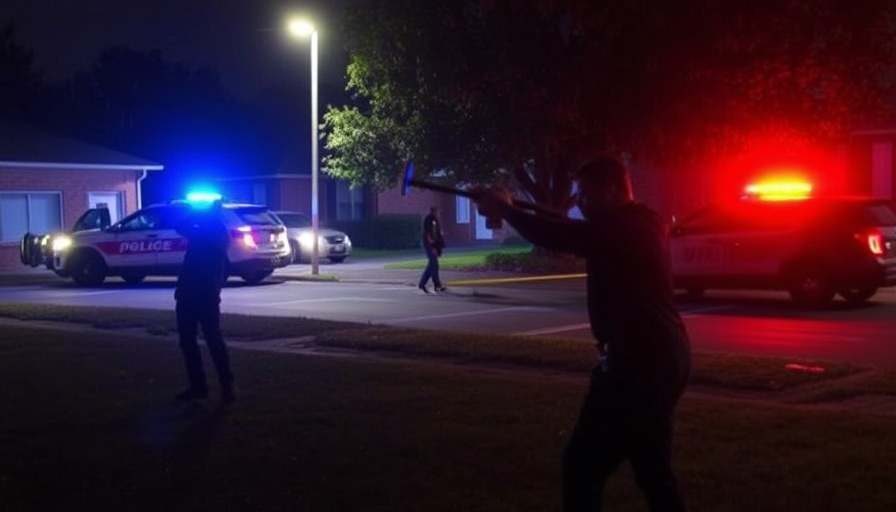
Understanding the Risks of Viral Games in Schools
The recent incident involving the water-based game "Senior Assassin" has sparked serious conversations about the safety of popular activities among students. This game, where seniors attempt to 'eliminate' each other using water guns, took a tragic turn when 17-year-old Isaac Leal fell from a moving vehicle and was critically injured. While police have decided not to pursue charges against the participants, the realities of such viral games raise pressing questions regarding supervision and safety.
What is "Senior Assassin" and Why is it Popular?
"Senior Assassin" is a type of game often played among high school seniors, capitalizing on themes of competition and excitement. The aim is to tag peers with water guns, leading to an engaging yet potentially hazardous experience. Despite its playful demeanor, incidents like the one involving Leal illustrate how quickly fun can turn into danger. In light of this, it’s critical for parents and schools to reflect on the implications and responsibilities that come with such open-ended games.
The Role of Parents and Schools in Student Safety
With the advent of social media, students are increasingly influenced by viral trends and challenges that might not be inherently safe. "Senior Assassin" is merely one example of a larger phenomenon where peer pressure meets thrill-seeking behavior. Parents play a crucial role in guiding their teenagers, discussing the potential risks involved in such games, and encouraging safer alternatives for social engagement. Schools, too, must play an active part in promoting a safe environment and possibly revisiting policies related to extracurricular activities.
Emotional Impact on the Community
The incident has resonated deeply within the Arlington community and beyond. Parents and students alike are faced with distressing questions about mortality and the risks of seemingly harmless fun. The reality of Leal's injury serves as a wake-up call, pushing families to confront the responsible limits of youth activities. Conversations around safety, responsibility, and the implications of dangerous trends are now more necessary than ever.
Other Communities Responding to Viral Challenges
This incident isn't isolated; it mirrors broader behavioral trends seen in various communities dealing with similar youth games. Across the nation, schools are grappling with managing student safety amid viral challenges that often push the envelope. It's a reflection of the cultural shift toward engaging in high-risk activities for social currency. Local governments and educational institutions must collaborate to foster safer environments, perhaps through awareness campaigns or by establishing clear guidelines regarding permissible school-year activities.
Encouraging Safer Alternatives
In the wake of unfortunate events like this, fostering safer alternatives for students can be a proactive step in preventing future injuries. Schools and community centers can organize supervised activities that encourage teamwork, challenge, and fun, such as sports events, outdoor adventures, or community service projects. By promoting safer, engaging options, we can channel the spirit of competition in ways that don’t compromise student safety.
As we move forward, it is imperative that both parents and institutions engage with youth culture comprehensively, equipping young individuals with the knowledge and judgment necessary to make safer choices. While "Senior Assassin" may seem like harmless fun, the associated risks highlight a vital conversation about youth safety in our communities.
 Add Row
Add Row  Add
Add 




 Add Row
Add Row  Add
Add 

Write A Comment